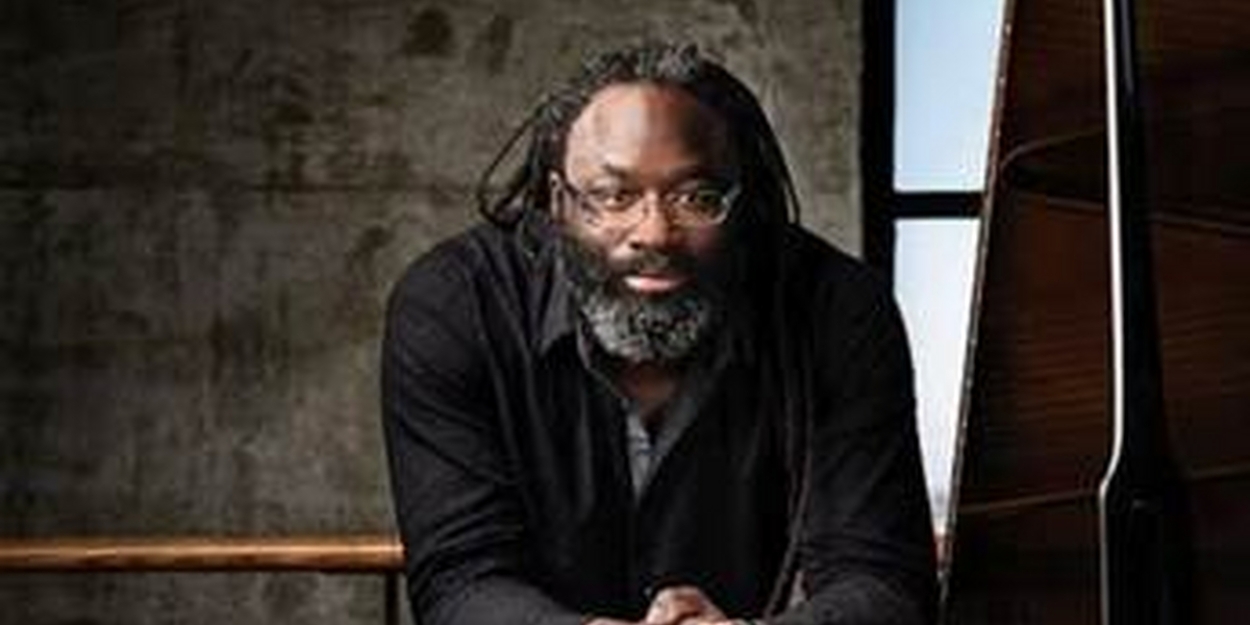Utah Symphony Embraces Innovation with Weekend Program That Highlights Contemporary Music
Learn more about the upcoming performances here!

Embarking on a sonic odyssey, the Utah Symphony invites audiences to venture into uncharted musical realms this weekend for an evening program that boldly embraces the spirit of exploration. In a celebration of innovation and creativity, conductor Teddy Abrams leads the ensemble in a meticulously curates an evening that seamlessly weaves together the timeless harmonies of Bach's Keyboard Concerto in A Major with the contemporary brilliance of Jessie Montgomery's Rounds, both works performed by trailblazing pianist and guest artist, Awadagin Pratt, followed by Abrams' own rap-opera Overture to The Greatest and the iconic finale of Copland’s Appalachian Spring. Together, these compositions transcend the boundaries of genre—serving as a testament to the Utah Symphony’s unwavering commitment to pushing the boundaries of classical expression. Audience members are invited on a musical odyssey that bridges the classical and the contemporary, challenging preconceptions and inviting them to discover new music composition. Three evening performances will take place on Thursday, November 30 at 7:30 PM at The Noorda at UVU in Orem, Friday, December 1 at 7:30 PM and Saturday, December 2 at 5:30 PM at Maurice Abravanel Hall in downtown Salt Lake City.
Pratt's virtuosity takes center stage with Bach's timeless Keyboard Concerto in A Major, a Baroque masterpiece that sets the tone for a journey through centuries of musical innovation. A cornerstone of Baroque brilliance, Bach's intricate counterpoint and sublime melodies create a dialogue between the soloist and the orchestra. Known for its vivacious spirit, this concerto showcases Pratt's technical prowess, allowing the audience to witness a seamless interplay between the solo instrument and the rich orchestral tapestry. With its radiant optimism and cascading flourishes, this composition becomes a vehicle through which Pratt connects the audience to the enduring legacy of Baroque grandeur. As the notes cascade through the concert hall, Pratt's interpretation becomes a bridge between the historical roots of classical music and the contemporary ears that eagerly await the exploration of musical landscapes yet to be discovered.
Following this keyboard concerto, Jessie Montgomery's Rounds adds a contemporary flair to the evening, offering a piece that is both energetically charged and contemplative. In fact, this piece has been nominated for a Grammy award in the category of Best Contemporary Classical Composition. Specifically crafted for Pratt, the composition allows him to improvise the conclusion, creating a dialogue between tradition and innovation. “In each performance, there is about 10 to 20 percent newly improvised material in the cadenza, which continues to evolve over time,” says Pratt. “It is an interesting and gratifying piece that rewards exploration the more I look into the aspects of how it was constructed.” As such, Montgomery's work, and Pratt’s adaptability, serves as a testament to the evolving landscape of classical music, pushing boundaries and inviting the audience into a realm of exploration.
And this boundary pushing continues with conductor Teddy Abrams’ own contribution to the evening's repertoire—Overture to The Greatest, a rap-opera that pays homage to the legendary American boxer Muhammad Ali. This innovative fusion seamlessly intertwines classical orchestration with the rhythmic beats and narrative dynamism of rap, creating a unique and compelling musical experience. As the orchestra weaves Abrams' intricate overture, the audience will be drawn into a sonic tapestry that mirrors the vibrancy and charisma of Ali's life. The rap-opera format serves as a modern-day canvas for storytelling, allowing Abrams to encapsulate the essence of Ali's journey—from the boxing ring to the broader themes of identity, resilience, and the pursuit of greatness. With each note and lyric, the overture unfolds as a musical biography, transcending traditional genres and inviting the audience to engage with the timeless narrative of one of the greatest sports figures in history.
These new American compositions are further emphasized with the grand finale—Copland's Appalachian Spring. This timeless masterpiece tells a poignant story of the American dream, symbolized by a young frontier couple working collaboratively towards a brighter future.
At the time of its creation, Copland's Appalachian Spring marked a departure from the European-influenced compositions that dominated classical music. In fact, it embraced a distinctly American musical language, characterized by open harmonies, expansive melodies, and a sense of wide-open spaces, and in so doing won a Pulitzer Prize. This shift in style was part of a broader movement in American music during the 20th century where composers sought to define a uniquely American sound. In the context of this weekend’s performances, the inclusion of Appalachian Spring not only pays homage to Copland's innovative spirit but also aligns with the overarching theme of exploring new musical frontiers.
This innovative fusion of classical orchestration and contemporary storytelling underscores the Utah Symphony's commitment to pushing the boundaries of musical exploration. Together with Rounds, Abrams' rap opera, and the celebration of Appalachian Spring, the program stands as a testament to the enduring spirit of creativity within classical music, bridging the gap between the past and the present.
For more information, please visit utahsyphony.org.
Comments
Videos

